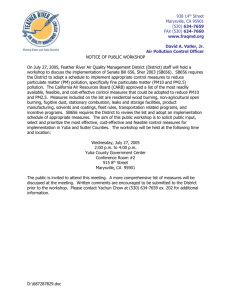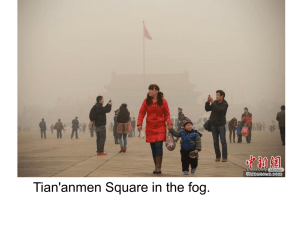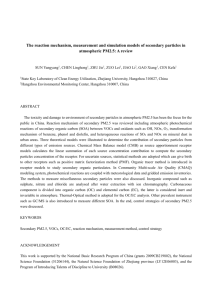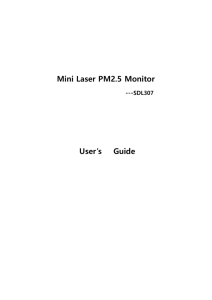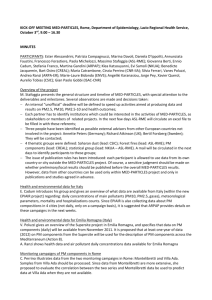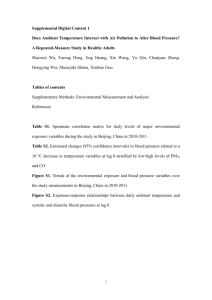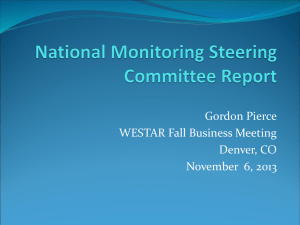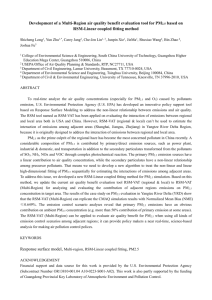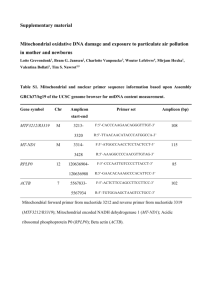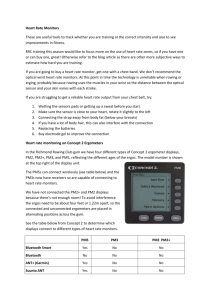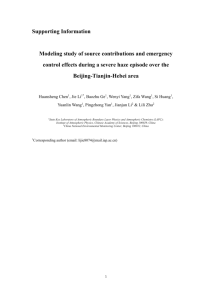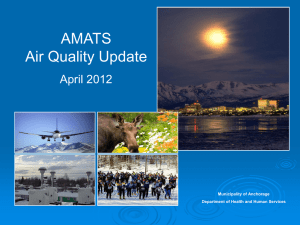BertilFerranHIAPMsize
advertisement
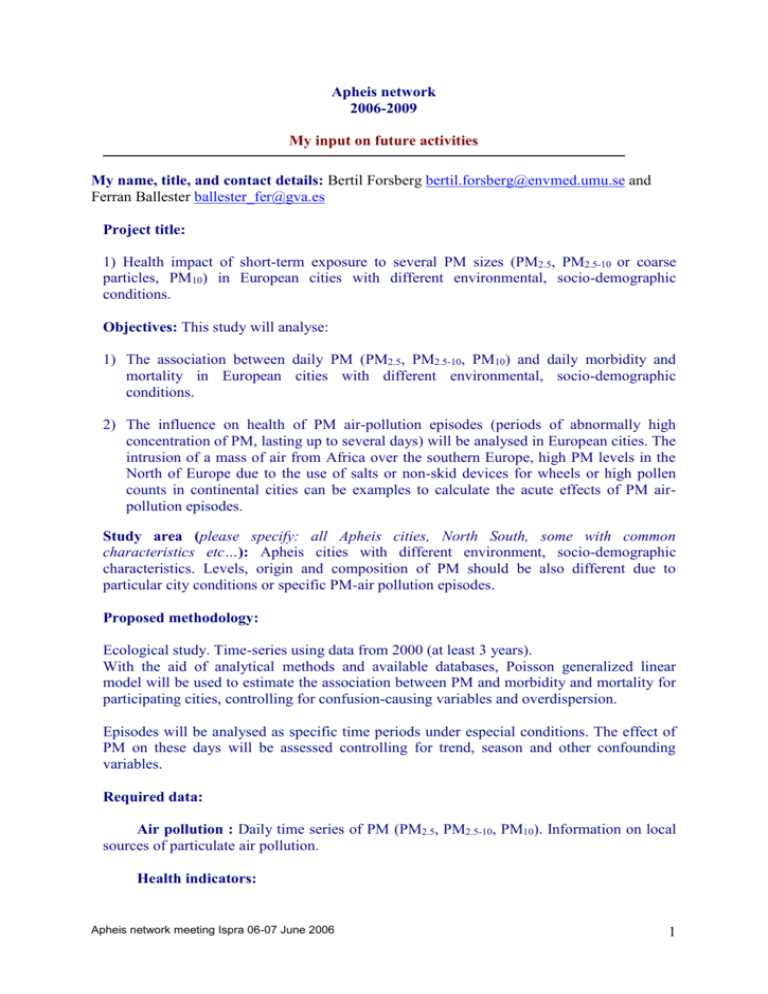
Apheis network 2006-2009 My input on future activities My name, title, and contact details: Bertil Forsberg bertil.forsberg@envmed.umu.se and Ferran Ballester ballester_fer@gva.es Project title: 1) Health impact of short-term exposure to several PM sizes (PM2.5, PM2.5-10 or coarse particles, PM10) in European cities with different environmental, socio-demographic conditions. Objectives: This study will analyse: 1) The association between daily PM (PM2.5, PM2.5-10, PM10) and daily morbidity and mortality in European cities with different environmental, socio-demographic conditions. 2) The influence on health of PM air-pollution episodes (periods of abnormally high concentration of PM, lasting up to several days) will be analysed in European cities. The intrusion of a mass of air from Africa over the southern Europe, high PM levels in the North of Europe due to the use of salts or non-skid devices for wheels or high pollen counts in continental cities can be examples to calculate the acute effects of PM airpollution episodes. Study area (please specify: all Apheis cities, North South, some with common characteristics etc…): Apheis cities with different environment, socio-demographic characteristics. Levels, origin and composition of PM should be also different due to particular city conditions or specific PM-air pollution episodes. Proposed methodology: Ecological study. Time-series using data from 2000 (at least 3 years). With the aid of analytical methods and available databases, Poisson generalized linear model will be used to estimate the association between PM and morbidity and mortality for participating cities, controlling for confusion-causing variables and overdispersion. Episodes will be analysed as specific time periods under especial conditions. The effect of PM on these days will be assessed controlling for trend, season and other confounding variables. Required data: Air pollution : Daily time series of PM (PM2.5, PM2.5-10, PM10). Information on local sources of particulate air pollution. Health indicators: Apheis network meeting Ispra 06-07 June 2006 1 Daily time series of morbidity (hospital admissions and, if possible, emergency room visits): cardiovascular, respiratory diseases, COPD (Chronic Obstructive Pulmonary Disease), asthma. Daily time series of mortality: all, respiratory, cardiovascular causes. If possible, number of cases by sex and age groups. Others: Daily time series of weather parameters as humidity, temperature or atmospheric pressure. Number of influenza cases. Expected results: 1) Exposure-response functions for short-term exposure to different PM sizes. 2) Health impact estimate of PM air-pollution episodes in the participating cities. 3) Scientific basis for policy guidance (air quality, selection of indicators, limit values, cap value…) and public-health decision-making (health warning, public-health surveillance…). Disciplines involved: Epidemiologists. Metrologists (particulate air pollution measurement specialists). Statisticians. Administrative and financial professionals. Public Health experts Timetable: This project will be carried out in at least 2 years. Preparation of protocol/response to call for proposals: 5 months Data collection: 4 months Data analysis: 10 months Report/paper writing: 5 months Need for funds: This project implies mainly person-time from the centres involved (at least 1 person-full time per centre analysing data per 2 years, and part-time cost for experts). If any centre needs to pay for the data, data collection costs. Travel costs. Apheis network meeting Ispra 06-07 June 2006 2
